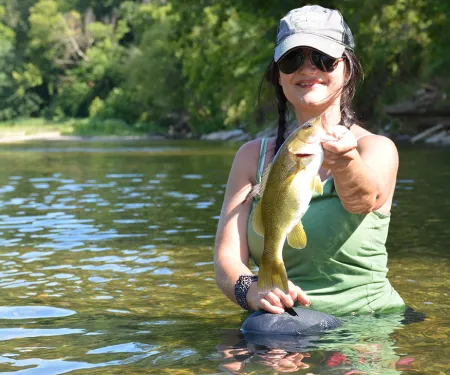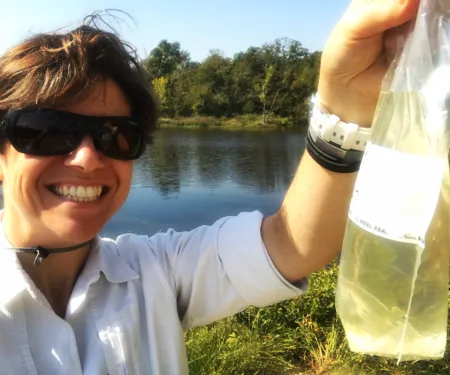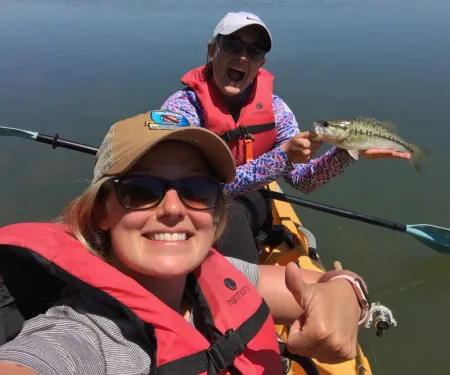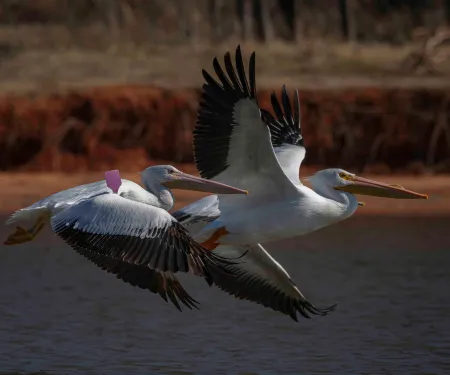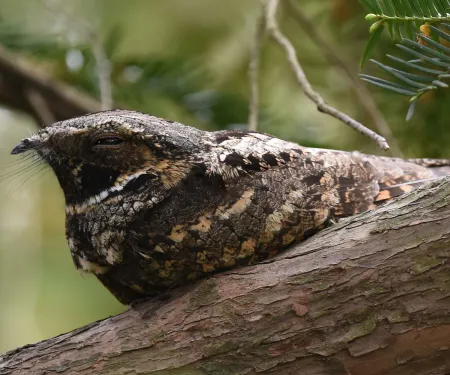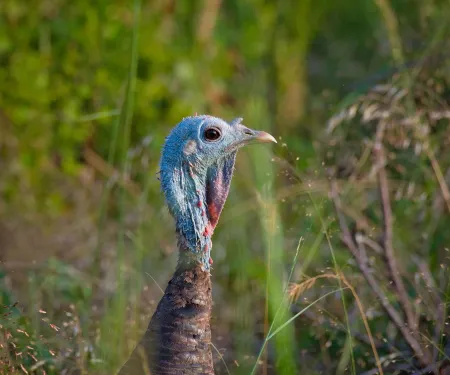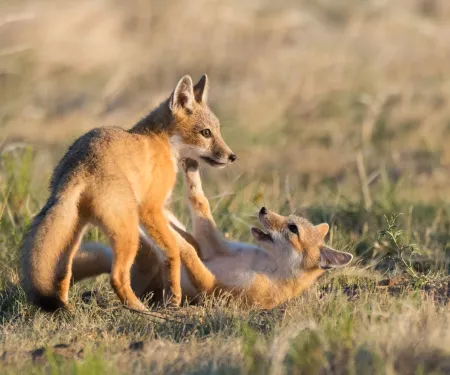Below are all the recent Outdoor Oklahoma Journals along with a search option to find a journal related to your subject of interest.
Smallmouth Bass Stream Angler Guide: Top Tips & Area Highlights
Don't pass up an opportunity to wet wade one of Oklahoma's clear-water streams for feisty smallmouth bass!
Survey of Oklahoma Lakes Bags Invasive Plants
Distribution and impact of invasive plants evaluated at 147 of the state’s lakes.
Watch Bats with the Wildlife Department
Registration for the popular Selman Bat Watches is now open! Mail your completed registration form by June 1.
Establishing Wildscape Water Sources
Water is a necessity for wildlife and is simple to provide. We offer four ideas for establishing wildscape water sources.
Tagged Pelican Photographed 950 Miles from Nest
Oklahoma photographer reported a tagged American white pelican and learned the bird’s origin story.
New Survey Efforts Launch this Spring
Wildlife Department partners with two universities and a conservation group to learn about and survey species of greatest conservation need.
Wildlife Department Embarks on Wild Turkey Research
Since severe drought conditions persisted across our state in 2012 and 2013, Oklahoma’s hunters and biologists have noticed what they feel is fewer turkeys roaming our diverse landscape. The Wildlife Department embarks on wild turkey research to find out why.
Tax Time Can Get a Little Wild
Don't forget to do your taxes — and don't forget the state's wildlife too!
